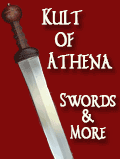Fava bean porridge (Puls Fabata)

Pliny: Natural History 18.117
A one-pot meal of hulled emmer wheat, fava beans, salted pork, and onions sauteed in olive oil. Could be cooked in caupona and served in castra/village or even cooked by individuals.
In ancient Rome, Varrone, in his “De Rustica”, reports that Fava beans (broad beans) were among the most largely consumed foods together with spelt and barley; moreover gens Fabia, one of the most important Roman families, took their name “faba”, from the word “fava”, the Italian for broadbean and Pliny mentions a very popular dish called “ puls fabata”, which was the ancestor of current maccu di favi.
Unlike the Romans who used to consume broad beans on the occasion of funeral rites, the Sicilians have always made a large use of them (both fresh and dried), in their diet.
Ingredients
- ½ lb emmer wheat berries soaked for 1 to 4 hours
- ¼ lb dried peeled fava beans soaked for 1 to 8 hours
- 1 oz. salt cured pork or ham, sliced
- 1 onion, chopped
- olive oil
- water
- red wine vinegar
- salt
Preparation
- Heat some olive oil in a patera or casserole and add the pork and onions.
- Sautee until the onions are golden and add the drained wheat berries, stiring often.
- After a short time add the drained fava beans and stir.
- Simmer the puls until the wheat and fava beans are soft and chewable consistency according to preference, adding water as necessary to prevent mixture from drying out or burning.
- Season with vinegar and salt, and drizzle with olive oil before serving.




















